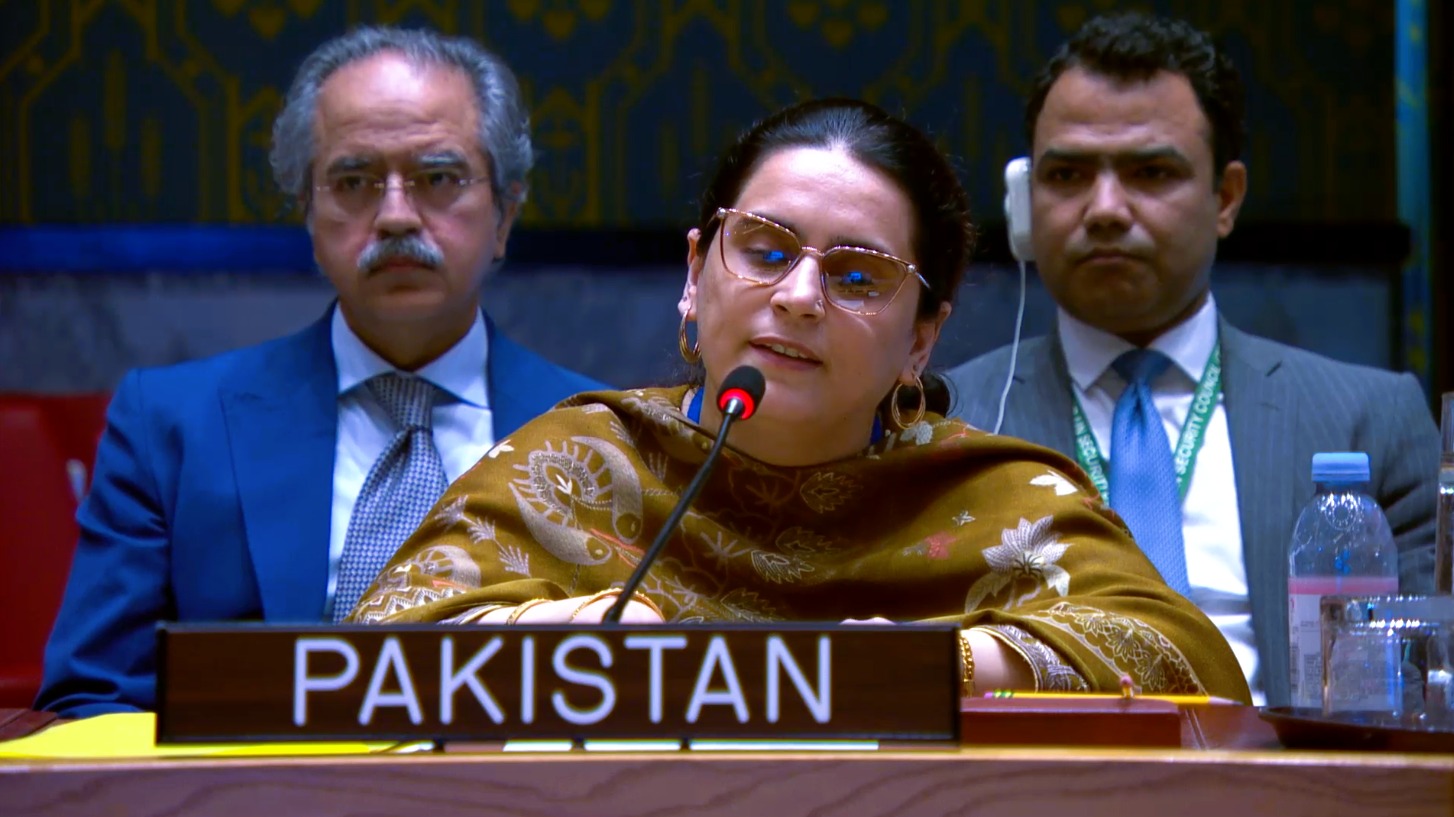
United Nations, October 6, 2025(Kamran Raja): As the world marks twenty-five years since the adoption of the landmark UN Security Council Resolution 1325 on Women, Peace and Security, Pakistan today urged the United Nations Security Council to address the plight of women living under foreign occupation, particularly in Indian Illegally Occupied Jammu and Kashmir (IIOJK) and Palestine. Speaking at the UN Security Council’s open debate on Women, Peace and Security, Counsellor Saima Saleem of Pakistan’s Mission to the United Nations drew attention to the grave suffering of these women, “from Gaza’s bombed maternity wards to Kashmir’s silenced villages,” emphasizing that “impunity and occupation are diminishing these women in global discourse.” Counsellor Saleem regretted that the latest report of the UN Secretary-General once again failed to acknowledge the plight of Kashmiri women, who have endured decades of sexual violence and other abuses under occupation. “To exclude Kashmiri women from the Women, Peace and Security agenda erases its legitimacy and undermines its universality,” she maintained, underscoring that the Jammu and Kashmir dispute remains on the Security Council’s agenda and must therefore be reflected in future reports.
Citing findings by the UN human rights mechanisms and international organizations such as Amnesty International, Human Rights Watch, and Médecins Sans Frontières, she highlighted documented violations including structural impunity, harassment of women human rights defenders, reprisals against female relatives of the disappeared, and widespread sexual violence.
Turning to the situation in Gaza, Counsellor Saleem described the suffering of Palestinian women as “one of the gravest tragedies of our times,” noting that seven in ten women killed in conflicts last year were in Gaza alone. “Pregnant women gave birth under fire without anesthetics or water. These are not collateral tragedies but deliberate crimes that demand accountability,” she asserted. She expressed concern over alarming global trends—a 90 percent increase in conflict-related sexual violence and a fourfold rise in women and children casualties over the past two years—stating that “progress has unequivocally stalled, and in too many conflicts, women remain the first casualties of violence and the last to be heard in peace processes.” Highlighting Pakistan’s contributions to advancing the Women, Peace and Security agenda, she noted that Pakistani women peacekeepers have served with distinction in conflict zones worldwide—“building trust, providing medical care, and supporting survivors where justice was denied.” She reaffirmed Pakistan’s commitment to the UN Gender Parity Strategy and to expanding women’s participation in peacekeeping operations.
Counsellor Saleem called for binding thresholds for women’s representation in all UN-mediated peace processes, stressing that “peace agreements with women’s participation are more durable.” She also urged greater protection for women under international law, accountability for the weaponization of sexual violence, and predictable funding for women’s organizations that are “often the first to respond and the last to leave” in crises. Reaffirming Pakistan’s principled position, she concluded that the road to peace “must be built by women and men together,” and called on the Security Council to transform pledges into tangible progress.